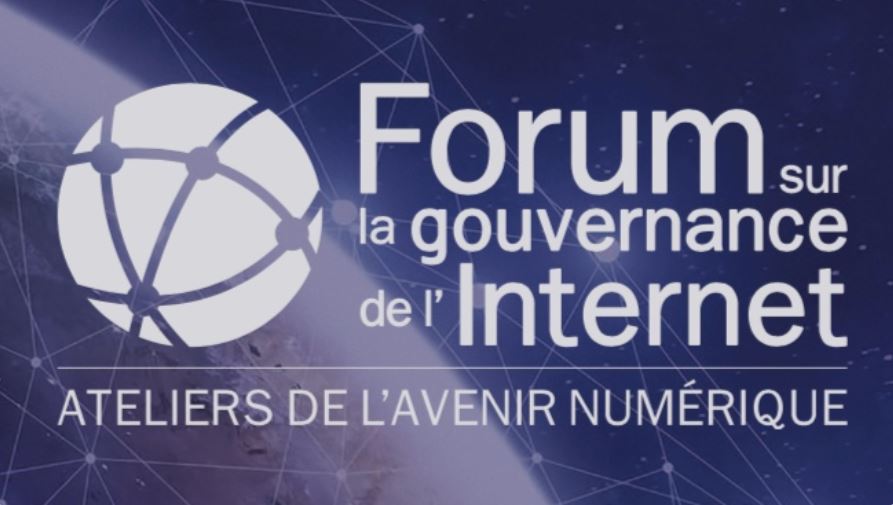UNESCO promotes digital inclusion and development at French Internet Governance forum
During a lively discussion in the workshop on “open data and predictive justice”, Associate Programme Specialist Rachel Pollack Ichou spoke about the question of algorithmic transparency.

- Country:
- France
On July 5th, the French Internet Governance Forum was held at Universite Paris Descartes. UNESCO, as an International Organization committed to harnessing the potential of the internet for sustainable development to build knowledge societies, actively participated in national debates related to the possibility of leveraging the internet, and ICTs more broadly, to promote digital inclusion and development.
Underlining, throughout the Organization’s interventions, the importance of human rights in the online environment and the need to develop ethical reflections based on UNESCO’s internet universality framework, UNESCO participated in several workshops throughout the Forum, culminating in a keynote by Moez Chakchouk, UNESCO’s Assistant Director-General for Communication and Information.
During a lively discussion in the workshop on “open data and predictive justice”, Associate Programme Specialist Rachel Pollack Ichou spoke about the question of algorithmic transparency.
She highlighted the various meanings of algorithmic transparency and the challenges associated with achieving it. Ms Pollack Ichou called for greater media and information literacy, noting that “while it is unlikely that everyone will become a computer programmer, it is essential to be informed and able to think critically about the role of automated-decision making and algorithms in societies.”
In a workshop dedicated to exploring digital inclusion and bridging the digital divide, Sasha Rubel, Programme Specialist in the Knowledge Societies Division at UNESCO, underlined UNESCO’s work in promoting Internet Universality based on the ROAM principles, and the importance of ensuring an internet that is rights-based, open, accessible, and multi-stakeholder.
Ms. Rubel provided an overview of UNESCO’s work in developing, through an open consultation process, the internet universality indicators, currently in the pilot phase in several countries. She also spoke about the information access and preservation policies of UNESCO. Particular emphasis was placed on UNESCO's role, as facilitator of Action Line C8 of the World Summit on the Information Society (WSIS) on cultural diversity and identity, linguistic diversity and local content.
Guy Berger, Director for Freedom of Expression and Media Development at UNESCO, presented the model curriculum “Journalism, ‘Fake News” and Disinformation” at the workshop dedicated to Digital and Media and Information Literacy.
The forthcoming model curriculum is part of the series on journalism education produced by UNESCO. Berger explained that the publication is aimed at journalism educators and trainers, as well as working journalists.
“It will also be of interest to political parties, health professionals, scientists, election monitors, NGOs, teachers, and Internet companies,” he added.
Summarising the contents, Berger said that societies need to be literate about the full range of responses to disinformation problems – covering those by governments, Internet companies, proponents of media and information literacy, and media actors.
In his keynote speech, Moez Chakchouk, Assistant Director General for Communication and Information, underlined that Internet governance should be understood as the complementary development and application by governments, the private sector, civil society and the technical community, in their respective roles, of shared principles, norms, rules, decision-making procedures, and activities that shape the evolution and use of the Internet.
For UNESCO, Chakchouk underlined, Internet Governance is a central issue. The Organization acknowledges the potential of the Internet for fostering sustainable human development and building inclusive knowledge societies, and also for enhancing the free flow of information and ideas throughout the world.
Chakchouk emphasized that the Organization, therefore, advocates an open, transparent and inclusive approach to Internet Governance based on the principle of openness, encompassing the freedom of expression, respect for privacy, universal access and technical interoperability.
Ethics and also the respect for cultural and linguistic diversity in cyberspace are other key concerns of the Organization. All of these elements are essential for UNESCO to fulfill its mandate and mission entrusted to it by Member States.
In closing, the Assistant Director General thanked the French Government for the interest they have expressed in hosting the Global Internet Governance Forum at UNESCO Headquarters in Paris in November 2018, and invited participants to work with UNESCO, through a multi-stakeholder approach, in ensuring an open discussion on the margins of the global forum related to harnessing Artificial Intelligence, and related technologies, to promote knowledge societies and sustainable development.
- READ MORE ON:
- internet
- UNESCO
- sustainable development
- algorithmic transparency
ALSO READ
An anonymous coder nearly hacked a big chunk of the internet. How worried should we be?
Govt to connect 1.5 million households to internet by end of the year
Janet Yellen's Culinary Adventures in China Captivate the Internet
DR Congo: Restore internet services as 'a matter of urgency', urges UN expert
Internet providers must now be more transparent about fees, pricing, FCC says










